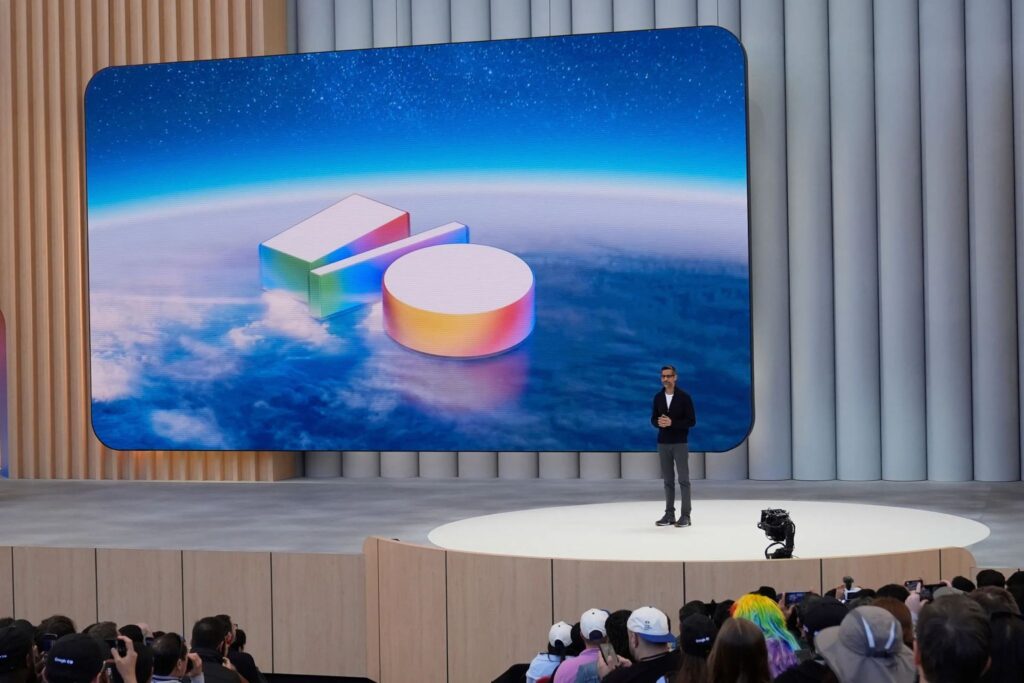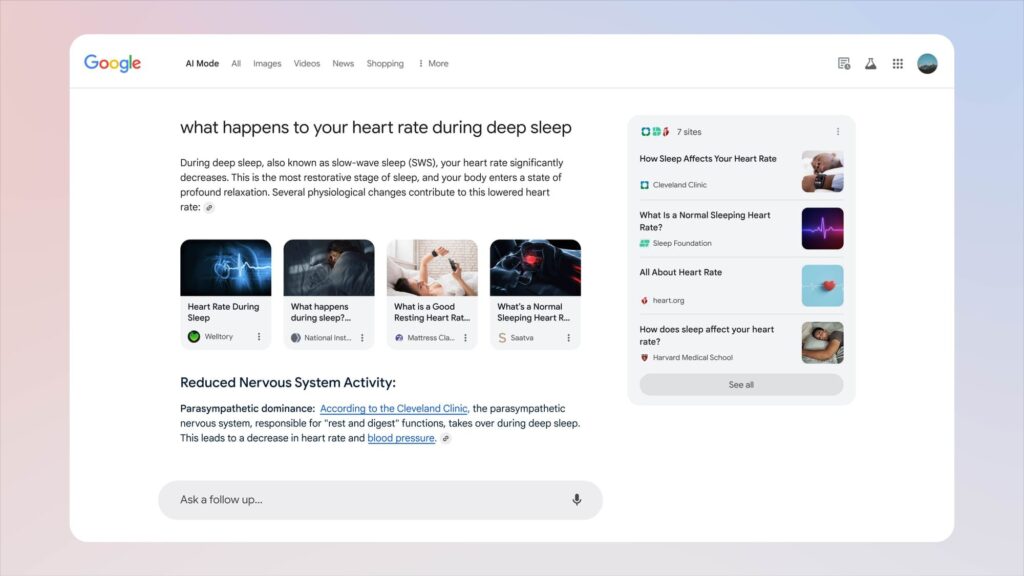Introduction: A New Era for Search
At Google I/O 2025, held on May 20, 2025, Google unveiled AI Mode, a transformative feature set to redefine how users discover content online. Unlike traditional search, AI Mode delivers hyper-personalized, conversational responses, leveraging advanced Gemini AI models to process complex queries. This shift, detailed in Google I/O 2025: Everything announced, signals a seismic change for SEO, impacting organic and paid strategies. Marketers across brand, social, and data teams must adapt to stay visible in this new landscape. Here’s what AI Mode means for SEO and how content creators can thrive.
What is AI Mode?
AI Mode, rolling out to U.S. users with plans for global expansion, reimagines search as a curated, conversational experience. According to Google I/O 2025 recap, its key features include:
- ⊳ Hyper-Relevant Responses: Delivers tailored answers using data from Gmail, search history, and more.
- ⊳ Conversational Interface: Handles complex, multi-part queries, similar to ChatGPT, encouraging detailed user inputs.
- ⊳ Web Research: Pulls from diverse sources like listicles, landing pages, and help docs while linking to websites and videos.
- ⊳ Personalization: Customizes results based on user preferences, such as excluding mushroom recipes for those who dislike them or suggesting restaurants near a booked hotel.
This shift toward “helping people discover more of what the web has to offer” prioritizes user intent over generic keywords, fundamentally altering SEO.
How AI Mode Changes SEO
AI Mode’s conversational and personalized nature disrupts traditional SEO strategies. Here are the key shifts marketers must navigate:
Explosion of Search Query Variations
Users are moving from broad terms like “CRM software” to specific queries like “CRM software with email automation for a small team managing global clients.” This, as highlighted in AI Mode in Search, New Gemini Features, increases query diversity, challenging SEO tools to track performance and rendering generic content less effective. To stay ahead, explore SEO strategies for 2025 that leverage AI overviews and Google trends to adapt to these shifts.
Decline of Generic BOFU Content
Bottom-of-the-funnel (BOFU) content, critical for product discovery, must now be highly specific. AI Mode acts as a product research assistant, pulling from comparison pages, help center docs, and public roadmaps. Generic product pages will struggle to rank. Learn more about optimizing for this new era with our comprehensive SEO guide.
Hyper-Personalized Search Results
With results tailored to individual preferences, such as fitness gear for late-night runners or travel recommendations based on calendar data, new brands risk being overshadowed by familiar ones, creating an “echo chamber” effect.
Rise of Alternative Discovery Channels
The personalization of AI Mode may push marketers to platforms like TikTok, YouTube, and Pinterest, where visibility can be borrowed through high-profile creators.
Shift in SEO Metrics
Traditional rank tracking is becoming obsolete. Metrics like impressions, share of SERP, recommendations, and organic conversion rates will take precedence, as emphasized in Everything Google announced at I/O 2025.

Strategies to Win at SEO in the AI Mode Era
To succeed, content creators must adapt to AI Mode’s demands for specificity, intent, and authority. Here’s how:
1. Create Hyper-Specific Content
Develop content addressing niche use cases, such as “project management tools for creative agencies with tight deadlines.” Topic clusters tailored to Ideal Customer Profiles (ICPs) will ensure relevance, as AI Mode prioritizes intent-driven results.
2. Double Down on BOFU Content
Invest in detailed comparison guides, use case studies, and help center articles. These resources: Gemini AI, Android XR, will serve as primary sources for AI Mode’s responses, boosting product discovery.
3. Enhance Product Marketing
Produce rich content like tutorials, whitepapers, and feature-focused documentation. Clear, structured content with detailed headings ensures AI Mode can easily reference your brand, aligning with insights from Google I/O 2025: Sundar Pichai’s opening keynote.
4. Leverage Audience Segmentation
Deeply analyze audience pain points, preferences, and behaviors to create content that resonates. This aligns with AI Mode’s personalization, ensuring your content matches user intent.
5. Explore Alternative Channels
Invest in TikTok, YouTube, and Pinterest, collaborating with creators to gain visibility. These platforms will be critical for new brands facing discovery challenges in AI Mode’s personalized SERPs.
6. Build and Maintain Authority
Focus on Expertise, Authoritativeness, and Trustworthiness (EEAT) through high-quality content and backlinks. Authority remains a key differentiator, as confirmed in Google I/O 2025.
7. Avoid Manipulation Tactics
Attempts to game AI Mode with overly broad content will likely lead to penalties or reduced visibility, as warned in AI Mode in Search, New Gemini Features. Focus on authentic, user-centric content.
Challenges and Opportunities for Content Creators
AI Mode makes SEO more complex, with less visibility into search queries and increased competition for personalized results. However, it also opens opportunities for creators who produce nuanced, product-focused content. By mapping content to life events, pain points, and specific intents, brands can stand out. The era of generic content is over; those who invest in detailed, intent-driven resources will fuel AI Mode’s recommendations and win the new SEO battleground.
Conclusion: Embrace the AI Mode Revolution
Google’s AI Mode, announced at I/O 2025, marks a turning point for search, collapsing the traditional funnel into moments of hyper-personalized discovery. Marketers must shift from keyword-driven strategies to intent-focused, specific content that educates AI on their brand’s value. By doubling down on BOFU content, leveraging alternative channels, and building authority, brands can thrive. The future of SEO is here, and great content is the key to success.
Email us at [email protected] to learn more about this topic and our services to plan ahead.

